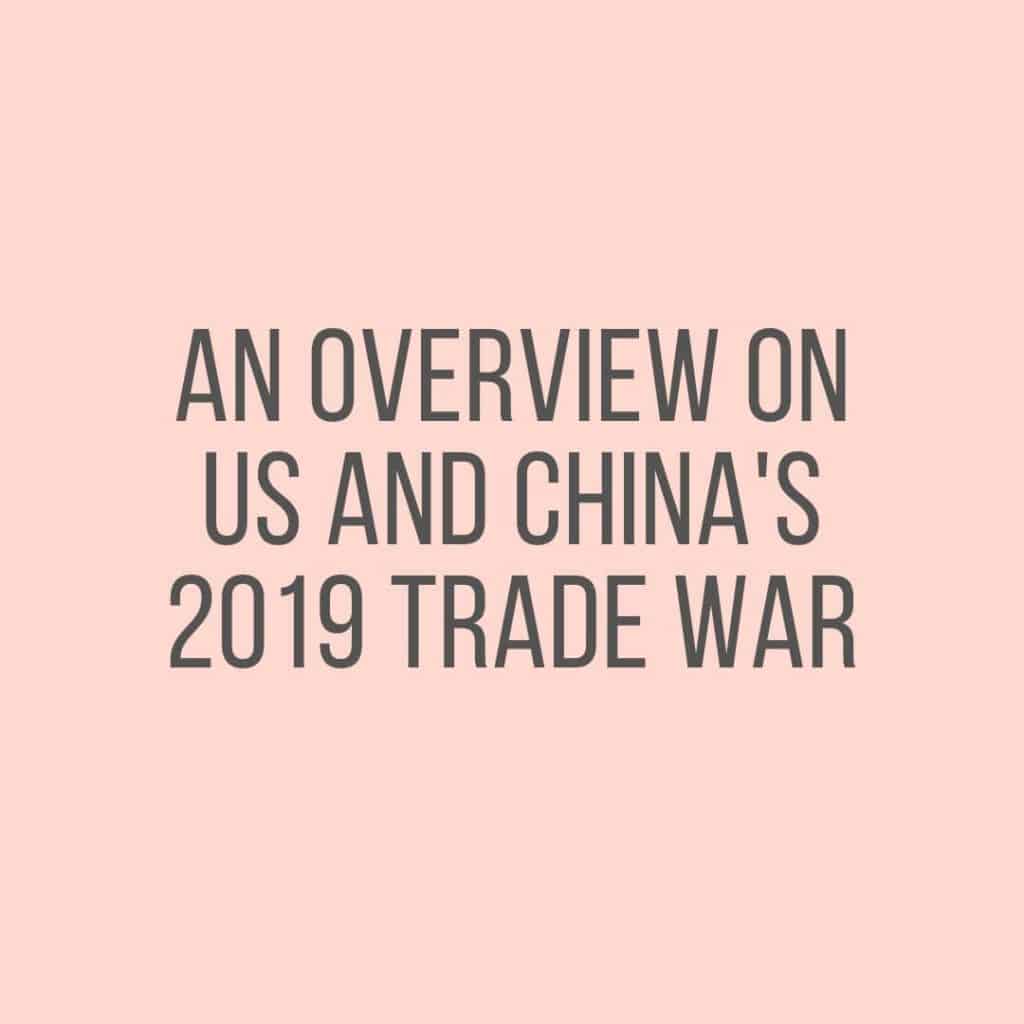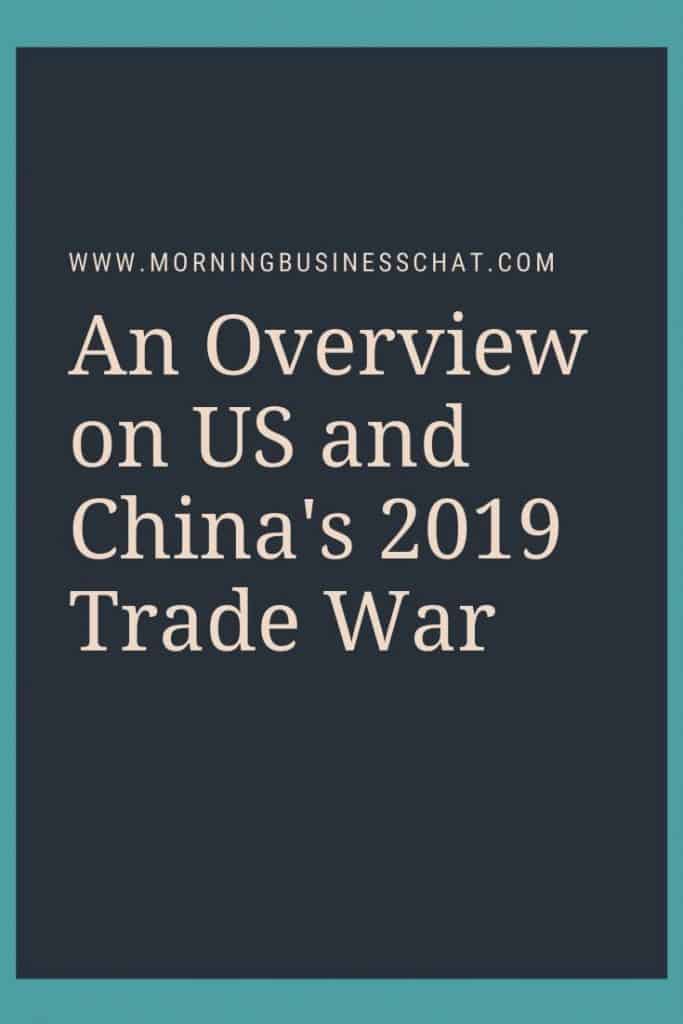Please note that this post ‘An Overview on US and China’s 2019 Trade War’ has been written by an outside source and I have been paid to publish this post. Please see my Disclosure Policy.
With Trump’s trade war with China showing no signs of being resolved anytime soon, it is essential to understand how it can impact your business.
So far, the US has placed tariffs on $550 million worth of goods from China. In retaliation, China has imposed its own tariffs on $185 million on goods from the US.
Neither side appears to be backing down. In fact, there have been ongoing threats of further tariffs down the line.
How will these tariffs affect your business? In this article, we will take a look at the trade war and what it spells for the future.

What is the US-China trade war?
The two largest economies in the world are the US and China. China has long been denounced by the US of unfair trading practices and stealing intellectual property from US companies.
China’s opinion is that the US has been trying to curb the growth of the Chinese economy as it threatens the US.
In an attempt to level the playing field, there have been many sets of negotiations that have not made any progress in addressing the concerns on both sides.
As an incentive to come to the negotiating table in good faith, Trump began imposing tariffs on Chinese goods coming into the US beginning in July 2018.
In retaliation, China began its own tariffs on incoming US goods including crude oil to the tune of 5% to 25% on certain goods.
How to navigate the waters
Large multinationals are well insulated against these kinds of turbulence in the global market.
Small and medium businesses are not as able to absorb these types of uncertainties, however.
There is always a ripple effect that manifests itself across a variety of markets which impacts many businesses, even ones that are not facing any increase in prices on their imports.
For instance, 48% of the American workforce comes from small businesses. The economic value of these workers is very high and anything that impacts their spending ability will result in some consequences for other businesses.
Small business owners should not try to figure out the best way forward on their own. Using a company like OCR is invaluable. Without decades of experience in global trade, and the financial buffers necessary, small business owners need a professional guide, so to speak.
This should include businesses that are not in the import and export sphere.
What can businesses do?
The trick to surviving a trade war is to carefully tread a line between staying competitive and still profitable until it is over.
Here are a few things a small business can do to survive.
- Flexible pricing – Prices will have to be raised, but there is a limit as to how much. Passing the increase in costs off to the customer may lose market share as the business loses its competitive pricing edge. Some of the costs will need to be absorbed. This will take careful consideration of the market and how much of increase customers can tolerate.
- Cut costs – Cutting costs to offset absorbing the increase in the expense of the goods being sourced is the easiest way to not have to raise prices too much. There may be some obvious waste in the company that can be trimmed without feeling any negative effects.
- Creative inventory planning – Even if the warehouse is stocked with goods that were bought prior to the trade war at a lower price, it is still creating a cash flow problem. Consumer spending slowing down will mean that the goods are not moving and there is not enough cash coming in. Just in time inventory is a solution to this problem. Of course, it gets more complicated during a trade war since supply chains are usually impacted.
What is on the horizon?
Regardless of if the trade war is ended with both sides happy with the outcome, it seems there was a tipping point of no return with regards to the overall economy. There is a recession looming and may be inevitable.
What might guarantee a recession is the threat of the US imposing restrictions on Wall Street on investments in Chinese companies. There is also the threat of blocking investments from Chinese companies on NASDAQ listed companies. This could put a chilling effect on overall investment and cause a global economic slowdown.
There does not seem to be an end in sight when it comes to the trade war. With any hope, both sides will come to some kind of agreement before the damage is too bad.



